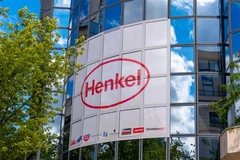World Bank announces US$100M waste reduction bond for plastic and carbon credits in Ghana and Indonesia

30 Jan 2024 --- The World Bank has issued a seven-year US$100 million Plastic Waste Reduction-Linked Bond. The bond, aimed at financing projects in Ghana and Indonesia, introduces an innovative approach by tying financial returns to the generation of Plastic Waste Collection Credits, Plastic Waste Recycling Credits (two forms of plastic credits), and Voluntary Carbon Units (carbon credits).
In a move toward mobilizing private capital for positive climate and development impacts, the bond transaction was led by Citi as the lead manager. The selected projects in Ghana and Indonesia focus on reducing and recycling plastic waste in vulnerable communities, addressing the global issue of plastics leaking into nature and oceans.

The bond is 100% principal protected, with the US$100 million proceeds allocated to support the World Bank’s sustainable development activities globally. Investors in the bond will forego a portion of ordinary coupon payments, directing equivalent amounts through a hedge transaction with Citi to support the financing of projects selected by Plastic Collective.
“With the bond, investors will receive a fixed rate coupon lower than the ordinary coupon received in regular World Bank issuances of similar maturity. An amount equal to the foregone coupons (the differential between the World Bank ordinary coupon and the smaller fixed coupon) are used to support an expansion of the projects,” explains Plastic Collective.
“The present value of the foregone coupons is channeled to the projects through Citi and Plastic Collective. In return, in addition to receiving the smaller fixed coupon, investors receive amounts from the World Bank linked to the number of Plastic Credits and VCUs — if any — generated and monetized by the projects. The bond will offer investors an enhancement over the yield of regular World Bank issuance of similar maturity if the projects perform as expected.” The plastic waste reduction projects in Ghana and Indonesia aim to curb plastic pollution, improve local air quality, reduce health impacts and generate employment opportunities in marginalized communities.
The plastic waste reduction projects in Ghana and Indonesia aim to curb plastic pollution, improve local air quality, reduce health impacts and generate employment opportunities in marginalized communities.
Channeling private capital
The plastic waste reduction projects in Ghana and Indonesia, managed by Plastic Collective, aim to curb plastic pollution, improve local air quality, reduce health impacts and generate employment opportunities in marginalized communities.
In Ghana, funds will support a community-based project to expand the number of waste collection and recycling sites in Accra. Meanwhile, in Indonesia it will be used to scale efforts in Surabaya to reduce ocean-bound plastics.
Anshula Kant, managing director and World Bank group chief financial officer stresses the significance of channeling private capital to support development challenges.
“Outcome bonds, like the Plastic Waste Reduction-Linked Bond, align incentives so investors benefit financially when positive development outcomes are achieved. They create a win-win situation with the local communities and ecosystems that benefit from less pollution, and we will continue issuing them,” says Kant.
Bonds, credits and returns
The Plastic Waste Reduction-Linked Bond, with a maturity date of January 31, 2031, is listed on the Luxembourg Stock Exchange. The bond structure, with fixed interest and interest linked to plastic and carbon credits, provides investors a potential financial benefit compared to regular World Bank bonds if the projects perform as expected.
The World Bank further details that the two plastic collection and recycling projects in Ghana and Indonesia over the next ten years are expected to collect approximately 230,000 tons of plastic waste out of which 180,000 tons will be recycled.
The projects are expected to support the production of a diverse range of recycled plastic products including electronics, luggage and reusable bags. A portion of the funding will be used to install a food-grade recycling production line.
Philip Brown, global head of sustainable debt capital markets at Citi, states: “I am incredibly proud of the collaboration between the World Bank, Plastic Collective and Citi in launching this fourth Outcome Bond. Our collective effort innovatively uses Verra-registered plastic credits to support two projects to reduce plastic pollution — a huge global challenge with particularly devastating impacts on emerging markets.”
“This Outcome Bond allows fixed-income investors to support development projects that would otherwise struggle to secure financing. We’re also responding to investor appetite for transactions with direct and quantifiable development impact.” The funding will enable the expansion of facilities and production lines, plus the implementation of social welfare programs.
The funding will enable the expansion of facilities and production lines, plus the implementation of social welfare programs.
Monetary and environmental gains
Investors participating in the bond, including Velliv Pension, Skandia, Mackenzie Investments, T. Rowe Price and Muzinich & Co., also expressed their enthusiasm for contributing to impactful initiatives that address global challenges while offering attractive returns.
Plastic Collective details that the bond was issued at par providing investors with a minimum guaranteed return of approximately 1.75%. Furthermore, the organization states irrespective of the plastic credits and carbon credits issued by the projects, investors will receive their principal investment back at maturity plus a minimum return from the World Bank, providing investors a AAAprated investment with the potential for an additional return if the projects are successful.
“The funding will enable the expansion of facilities and production lines, plus the implementation of social welfare programs to enhance and protect the livelihood of informal waste pickers who are the foundation of these projects. We hope this new approach to financing environmental and social impact activities will benefit many more in the future,” concludes Plastic Collective CEO Steve Hardman.
By Radhika Sikaria











